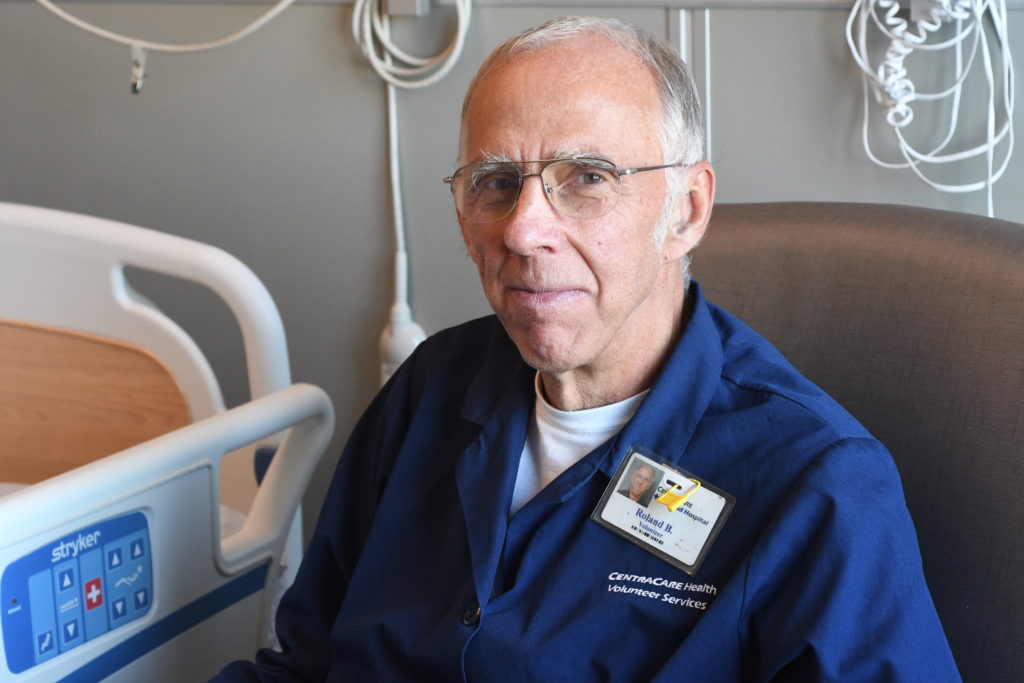Retired oncology nurse accompanies patients at the end of their lives so that ‘No one dies alone’

Roland Brummer came home from nursing school the day before his father’s death. He looked at his father and thought, “I don’t want to see him die. Maybe we should take him to the hospital.”
Brummer talked with his father, who was alert. He said, “Dad, do you want to go to the hospital?” And three times his father said no. He died 12 hours later, in his own home, in his own bed with his wife of 45 years lying next to him.
“We had intimate talks about his conversations with God at that time and his feelings about his upcoming death,” Brummer said. “On the last day of his life, I experienced his serenity and his peacefulness in the face of his imminent death. I also experienced his warmth and his love towards me and others in our family.
“I firmly believe that I received my calling to be a cancer nurse as well as to care for dying patients from my father as his dying gift to me,” Brummer said. “My life would be so much different if I had not had the opportunity to share those intimate moments with [him].”
Brummer, who worked as an oncology nurse for 28 years, stated, “I feel strongly that no one should ever have to undergo unwanted treatment at the end of life.”
Brummer grew up in Randall, Minnesota, and has lived in St. Cloud since 1986. He and his wife, Kathleen, have two grown sons and two grandsons.
After retiring from nursing in 2017, Brummer was selective about how he wanted to spend his retirement. He knew he wanted to do volunteer work but wanted to make sure it was meaningful. Because of his experiences with death and dying, he decided to be part of the St. Cloud Hospital’s “No One Dies Alone” (NODA) program.
“Being there at the time of death or very close to the time of death, you can’t help but wonder or think about your own spiritual beliefs and what people feel about life and death and what happens after death. It’s a very life-changing experience. It is such a privileged moment,” he said.
Brummer said when he is volunteering with NODA, he sometimes sits quietly at the patient’s bedside, and at times, he might talk to them or hold their hand. Mostly, he hopes his presence brings them peace.
“When my father died, he was so much at peace. He was laughing as best he could with the energy he had and seemed very much at peace. And through all my work, that is what I tried to bring to the person who was dying and to their loved ones. You can’t always do that, I’m no miracle worker, but if you can bring any sense of peacefulness, I know it changes people’s lives. It changed mine. If my father had chosen to end his life by physician assisted suicide when he found out he had advanced lung cancer, I would probably never have become a cancer nurse.”
“The intentional taking of life can rob us of the many unexpected gifts we can receive from a dying loved one. What we need is more palliative care which encourages families to encounter end of life care in a meaningful way and to talk honestly about this with the dying person so they see how much value their life still holds.”
“I don’t believe physician assisted suicide is good healthcare. I believe it would divide healthcare providers while not improving care. As a nurse, I didn’t believe in taking actions with the intention of hastening death, so I focused on providing wholistic care to treat symptoms. I didn’t become a nurse to end life, but to help people live as fully as they can until they die.”
A portion of this article was adapted from an interview with Roland Brummer in The Central Minnesota Catholic.